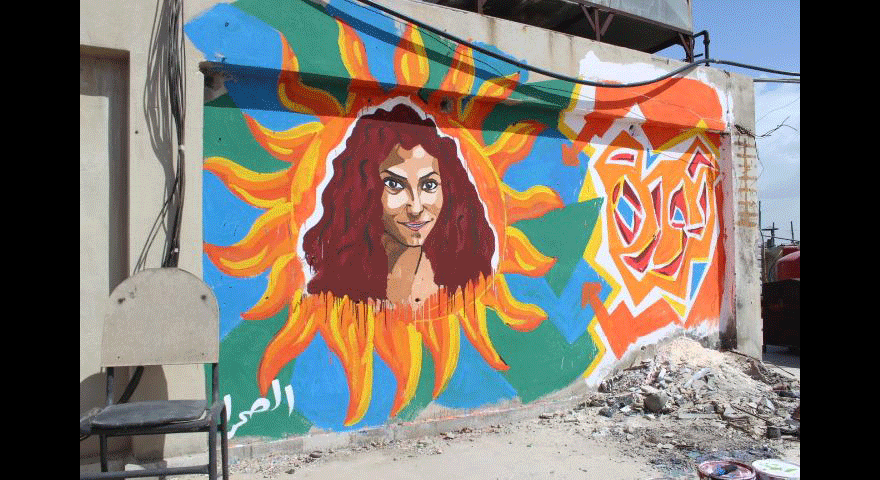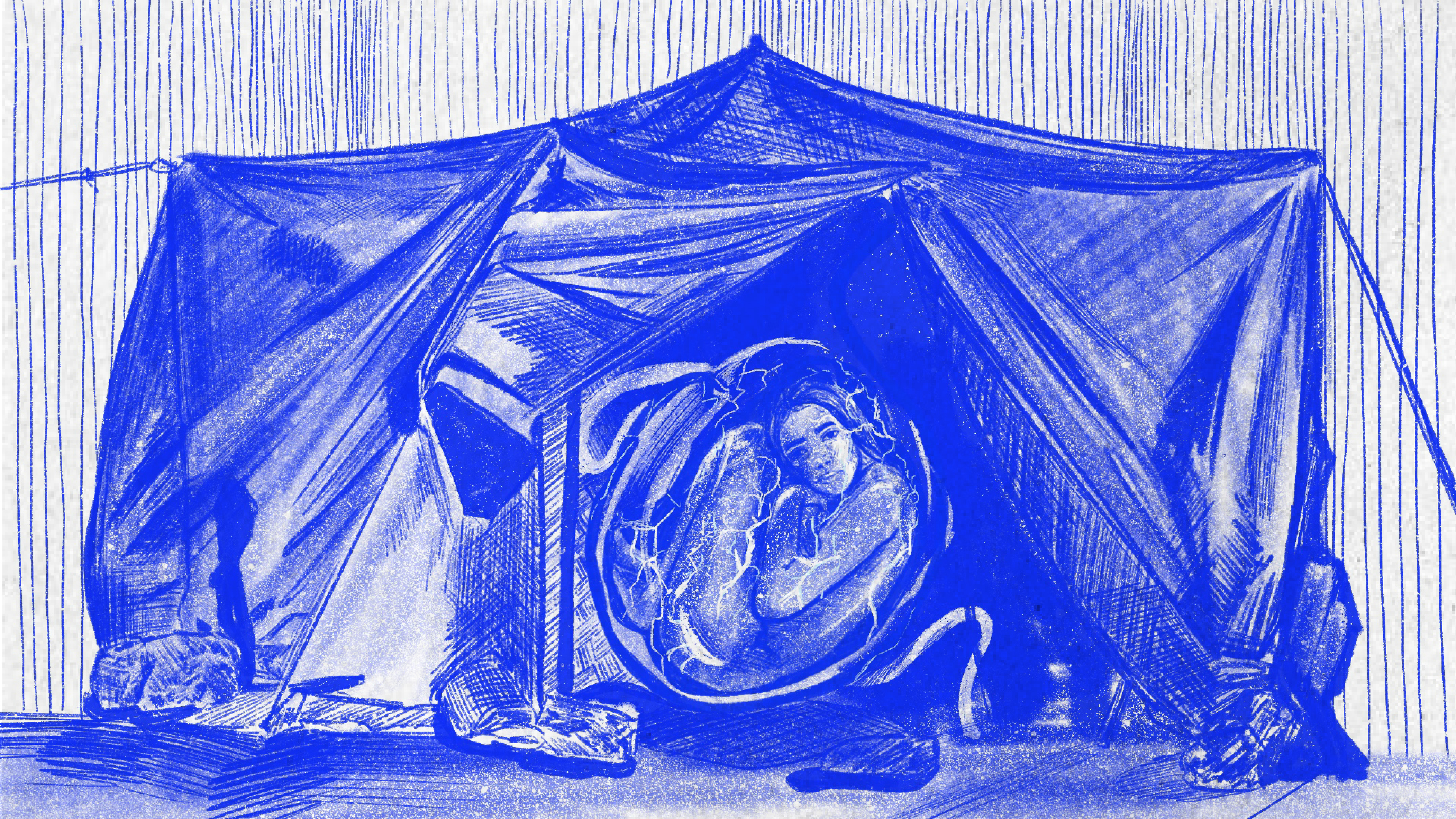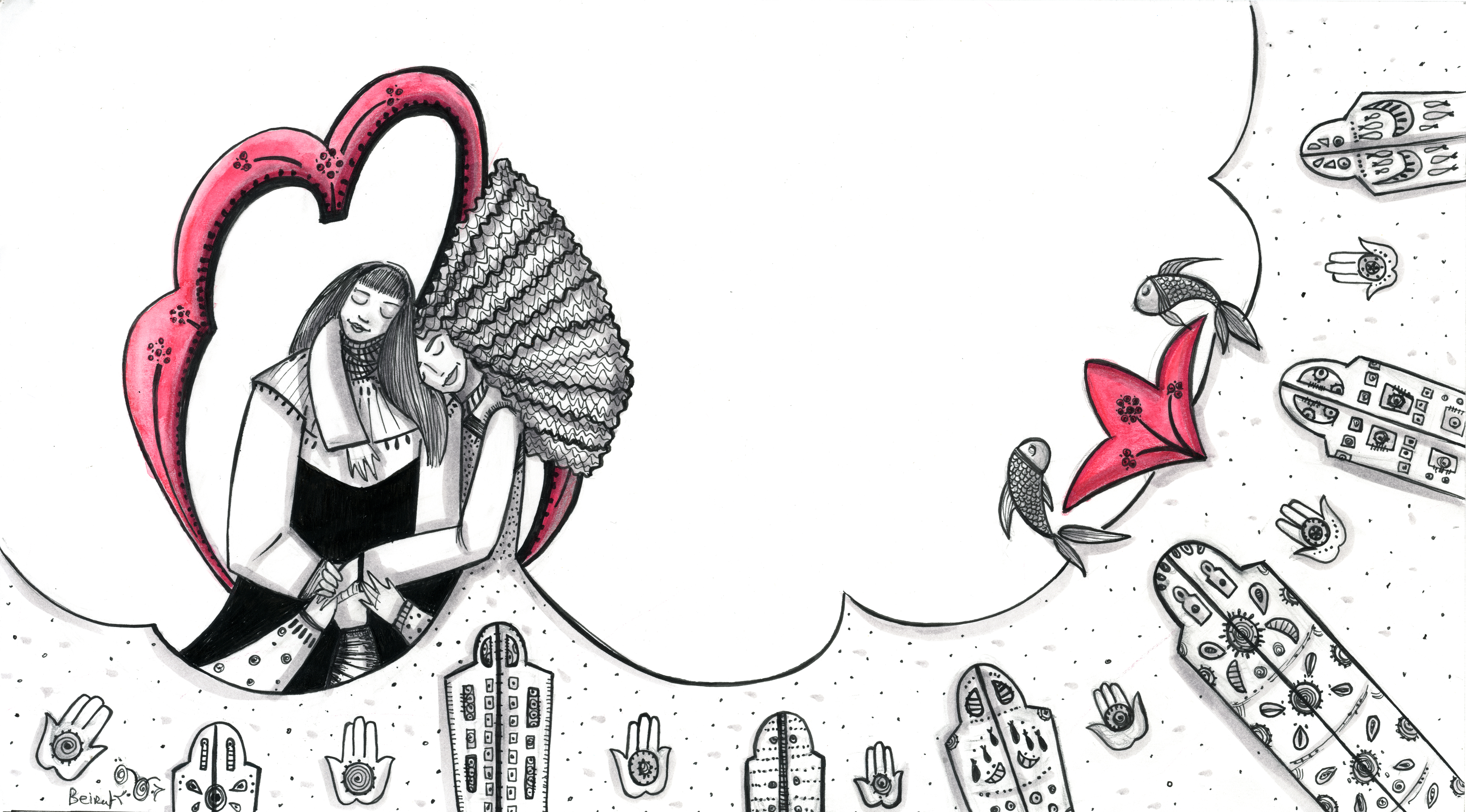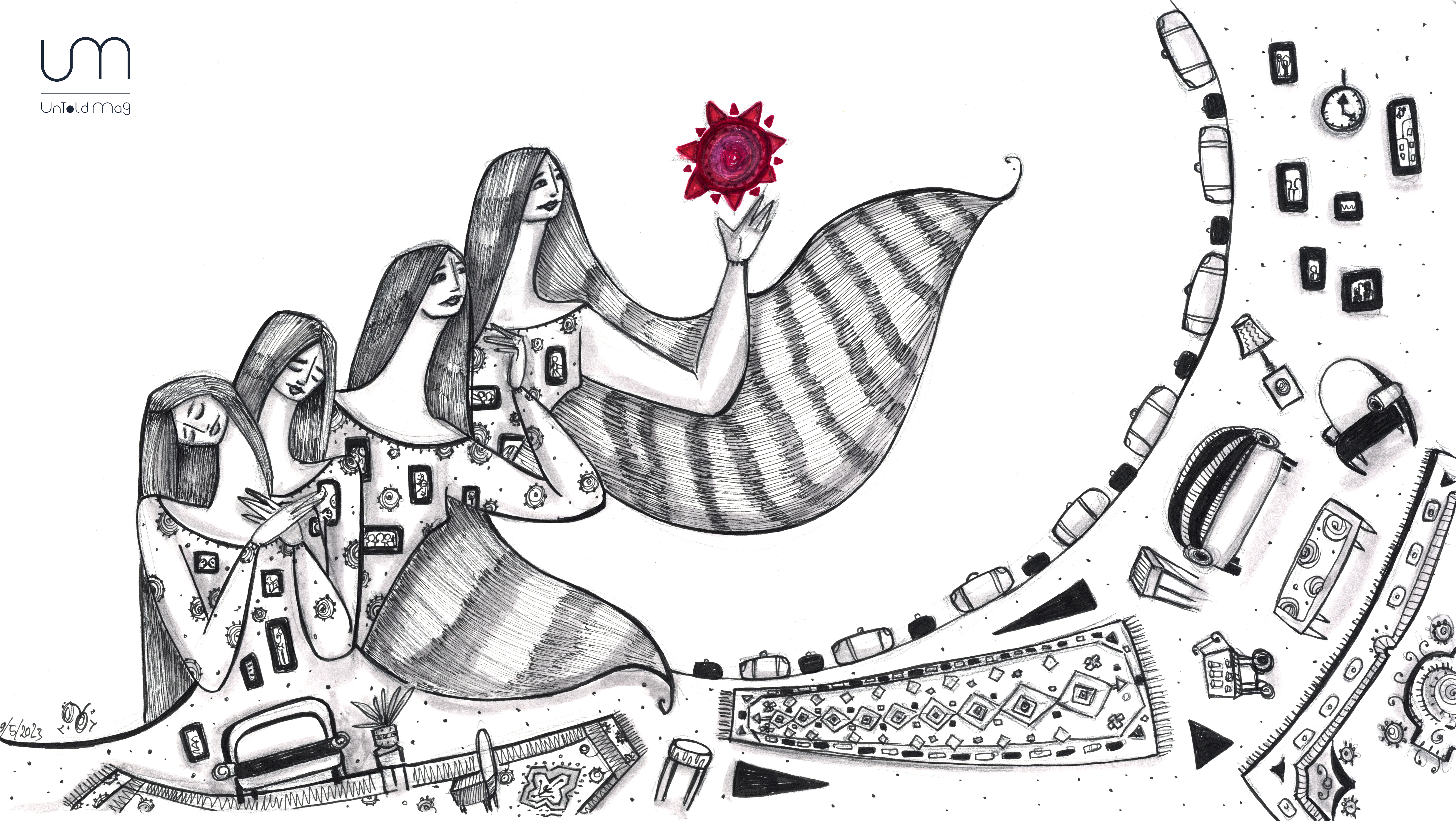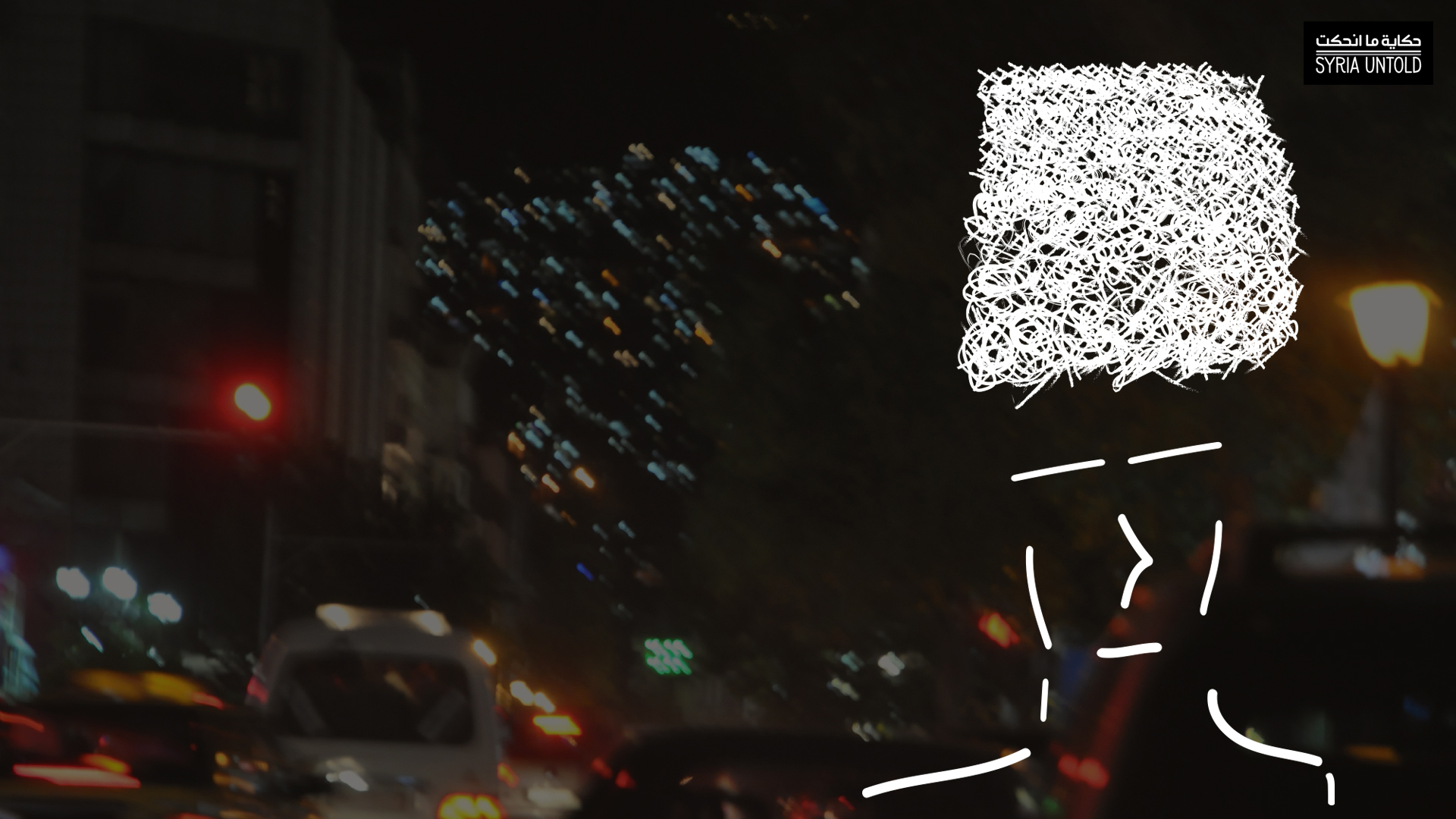According to my mother, my father's friends defended him after their divorce and his neglect of responsibilities towards his daughters. One of them mentioned in her presence that a renowned writer abandoned eight children to pursue his immortal novel. Honestly, I never fact-checked this information, despite knowing the writer's name, nor did I feel inclined to do so, knowing how easily accessible it is on the internet. It doesn't particularly concern me that a prominent intellectual chose to neglect his responsibilities in order to bestow upon humanity an artistic masterpiece.
My mother's struggle to raise two daughters in the absence of a father was not less surprising than her shock at the Syrian leftist cultural community, where certain figures were willing to band together to defend someone's evasion of responsibility.
My father supposedly gifted Syria a novel towards the end of his life, or so I've been told. However, I never verified this too because such an achievement ultimately holds no significance for someone abandoned by their father. In any case, I believe this novelist lost a reader who deeply appreciates literature and its study.
The memory of my father's friend and his rationalizations, which compounded my mother's isolation as a divorced woman in the eighties, now resembles a blurred image from a distant dream. The vague recollections of patriarchal behaviors among certain acquaintances and relatives in my childhood and youth are fleeting flashes in my memory. Now, as I grasp the language of "knowledge," I strive to articulate my past experiences, transforming them into comprehension and gaining insight into how these experiences have shaped my present self.
My Father is Open-minded and Understanding
I grew up in my environment without fully understanding his political leanings, but the contradictions regarding women within it left an impact on me. It appears that my early experiences with marginalization were tied to my gender before I became aware of my class and my environment's political orientation. The evening cultural gatherings at our neighbor Abu Razan's house (a pseudonym, as are all the names in the text), a gentle and literature-loving man, would stretch late into the night, attended mainly by his friends, the leftist intellectuals (sometimes with their wives and families). Meanwhile, Um Razan would prepare appetizers and Arak, and everyone would discuss the latest political, literary, and intellectual developments.
My mother's struggle to raise two daughters in the absence of a father was not less surprising than her shock at the Syrian leftist cultural community, where certain figures were willing to band together to defend someone's evasion of responsibility.
There's no denying the collective admiration for Um Razan's exceptional Kibbeh and Tabbouleh, but it is odd that no one ever stopped to ask about the eczema on her hands, caused by continuous dishwashing and cleaning, especially with the lingering smell of their burning cigarettes filling the living room during winter days. During summer, the gatherings took place in the house's beautiful garden.
I couldn't understand how two people who worked as employees all day, one claiming to support his wife's self-fulfillment (while withholding judgment on the implicit suppression of women's autonomy and the reinforcement of male authority in this assertion, as male dominance over women is justified when men are perceived as morally upright, thereby solidifying this authority without scrutiny), could end their day with him lounging in front of the TV while she made dinner, tutored the children, and prepared to entertain his guests.
Abu Razan was a kind man who cherished his family, and his daughter Razan grew up in a nurturing environment with him. It wasn't entirely surprising that he felt compelled to arrange Razan's marriage at a young age to a relative with European citizenship, as he sought to secure the best for his family, knowing the opportunities this would open for her and her brother. When Razan returned divorced after suffering abuse from her husband, Abu Razan withdrew, and the evening gatherings ceased, as we used to hear the music coming through their lush green garden.
Classical Music
A fleeting melody from Beethoven's music drifts by, and I am struck by a sense of unease that takes me a while to decipher. I remember how this music was linked to our relative who filled a void in our lives during our father's absence. This relative, who loved classical music and poetry, skillfully managed contradictions that allowed him to benefit from the prevailing systems of the time.
"Given the left's commitment to social justice, it was surprising that this did not align with a proactive stance on women's issues."
Having grown up in a conservative, traditional family, he was compelled to marry his cousin at a young age, someone who shared the same conservative mindset. Upon discovering his identity as a poet and intellectual, he sought a second wife to fulfill his artistic aspirations. Our leftist relative, the poet and intellectual, managed to marry two women to write delicate poems that bring peace to our hearts. He utilized the polygamy system to live as an intellectual and poet. Despite the privileges he gained, this relative did not hesitate to assert his patriarchal authority and resort to violence against the women of the family, who prepared appetizers and snacks to the tunes of classical music, enabling him to contemplate his pioneering role within the system.
Suppression and Authoritarian System
Awaiting her father, imprisoned for years, Rama was only nine years old when she met him for the first time. Amid tears and the sobbing of women gathered to welcome him, Munir embraced his daughter, who was scared of the screaming around her for the first time. I witnessed these moments that remain vivid in my memory and instilled fear in both me and Rama.
Wombs Under Collapse: On Abortion in Lebanon
13 May 2024
My mother cherished artistic paintings of Abu Rama, a dear friend whose absence pained her heart. She hoped that one day I would love art like him. Abu Rama was among my father's friends who endured years of imprisonment as part of the regime's crackdown on leftists in various organizations during the 1980s and 1990s (and even now). His family paid a heavy price due to political suppression, and Rama, like many Syrian children, missed out on years of paternal affection.
Syrian leftists lived under a repressive security regime that stifled freedom of thought. Many faced imprisonment, job deprivation, low wages—especially in intellectual fields—and endured surveillance, exclusion, and censorship of expression, thought, political freedoms, and the list goes on.
"Given the left's commitment to social justice, it was surprising that this did not align with a proactive stance on women's issues."
We have lost numerous intellectuals who have left a political void. Our generation and those after us continue to bear the burden of. When I reflect on my father, who was not a direct victim of the regime but still part of a harsh reality, I try to consider this context. While grappling with this acceptance, I acknowledge that it cannot erase the years of psychological and social harm endured by me, my mother, and my sister. Nonetheless, it is a step towards understanding my identity.
A Mix of Contradictions... Oh Comrade, “Who Will Wash the Dishes”?
In Syria's paternalistic system, women endured marginalization across societal levels. Being a leftist and a comrade in the struggle theoretically entitled you to social rights that placed you on equal footing with your comrade. In theory, given the left's commitment to social justice, it was surprising that this did not align with a proactive stance on women's issues. Some women felt they bore burdens akin to men outside the home, yet within the household, they faced a hierarchy that imposed caregiving and domestic responsibilities without the husband being an equal partner. Moreover, mechanisms of oppression and paternalistic marginalization intertwined in relationships between women and men, especially within marriages, leading some women to prefer staying at home rather than shouldering additional burdens.
Now, following the Syrian revolution, it is evident that true justice cannot exist if one segment of society remains marginalized while others retain their privileges.
Reflecting on these contradictions, which characterized the practices of some leftists embracing a paternalistic culture in the past, is not meant to condemn them outright. Rather, it serves as an opportunity to create room for learning and contemplation about narratives that have shaped our lives and continue to influence us today.
Now, following the Syrian revolution, it is evident that true justice cannot exist if one segment of society remains marginalized while others retain their privileges.
Fathers We Have Lost
Uncle Nader, a kind and devoted man who raised three children and shared responsibilities with his wife after their divorce, passed away during the revolution to a shell. I remember this gentle and joyful father fondly, cherished by his loving daughters, and I pray for his mercy.
Similarly, my adopted father, who is my mother's husband and the father of my sisters, fills my memories with love. He has been a gentle presence during our times of violence, exhaustion, and betrayal faced by the sons and daughters of the Middle East, who is relentlessly drained.



